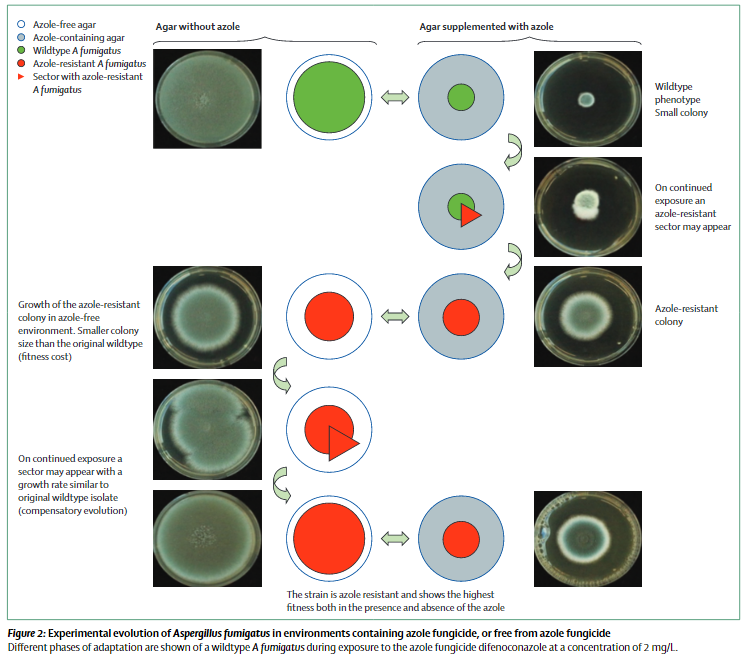Submitted by GAtherton on 1 October 2016

Aspergillus fumigatus is a common fungus and much more rarely, an important pathogen. Just as A. fumigatus can adapt rapidly to growing conditions in the heat of decomposition in a garden compost heap, so it can also adapt quickly to doctors efforts trying to prevent its growth in the heat of a human body. There are several drugs that are used to treat these fungal infections which are effective but Aspergillus fumigatus can quickly become resistant to some of the most widely used of those drugs, one after the other.
This recent review publication summarises the ‘Catch 22‘ nature of the dilemma facing doctors treating people with this infection. If they treat and then change the drug as it becomes resistant it seems to stimulate the fungus to change. If doctors do not change the treatment then the fungus will not become resistant but of course will probably be able to carry on growing. If left to grow unhindered the fungus continues to adapt to the highly unusual growth condition in lung tissue and thus make it even more difficult to eradicate.
If a fungal infection is treated with an antifungal it will adapt and become resistant – but at the same time it is sacrificing some of its ability to grow rapidly (i.e. fitness – see image above). If it is then allowed to grow without antifungal drug it can regain fitness by further adaption while still retaining resistance to the antifungal drug. The process of change has allowed the pathogen to acquire both properties and become ‘hypervirulent’.
In view of this the authors seems to be arguing that doctors should be mindful to minimise changes to treatment, though as yet this is a suggestion to promote discussion rather than offering any current solutions.
News archives
-
Title
Date


